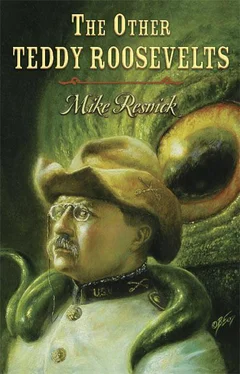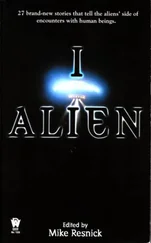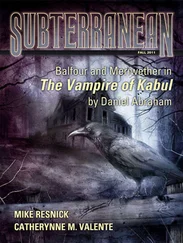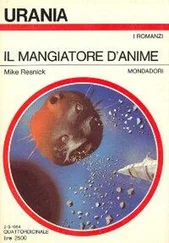An officer from Scotland Yard has read of my experiences in the Dakota Bad Lands and asked Grover Cleveland to “loan” me to the British until these murders have been solved — and Cleveland pounced on such an excuse to remove me from the upcoming campaign.
With luck, I’ll have things sorted out and solved in time to see Ben Harrison give his victory speech in a little less than two months.
My best to Alice and little Ted.
Your Theodore
* * *
Roosevelt sat on a rickety wooden chair, his back to the window, thumbing through Hughes’ files.
It was clear that Polly Nichols was a Ripper victim. He doubted that the three who preceded her — Emma Smith, Ada Wilson, and Martha Tabram — were. They’d been brutally murdered, but the modus operandi differed appreciably from the two most recent killings.
The files were very circumspect about the Royal who had come under suspicion, but Roosevelt deduced that it was Prince Eddy, more formally Albert Victor, son of the Prince of Wales and, quite possibly, the future King of England.
Roosevelt put the papers down, leaned back on his chair, and closed his eyes. It just didn’t make any sense. It would be as if Grover Cleveland had walked into a Washington slum and killed a pair of women and no one had recognized him. It was true that Prince Eddy was a dissolute and depraved man, and Roosevelt held him in total contempt — but there was just no way he could walk fifty yards in any direction, in or out of Whitechapel, without being recognized.
He removed his spectacles, rubbed his eyes, and then stood up. It was time to stop hypothesizing and go out and meet the residents of the area. He needed to talk to them, get to know them, and learn their opinions, which, he was sure, would be worth more than the police’s.
He walked over to a decrepit coat rack, then paused and smiled. He crossed the room to his steamer trunk, opened it, and a few moments later was dressed in the fringed buckskin he wore at his Dakota ranch. (It had been designed by his favorite New York haberdasher, since all the Dakotans were busily trying to look like New Yorkers.) He took off his shining black shoes and pulled on a pair of well-worn boots. Then he tucked a knife and a pistol into his belt.
He considered a coonskin hat, but decided to wear a stetson instead. He looked at himself in the fly-specked mirror and grinned in approval. As long as he was going to be identified as an American the moment he opened his mouth, he might as well dress like one.
He walked out the door of his shabby building and was immediately aware that he had become an object of notoriety. Every pedestrian within sight stopped to stare at him. Even horse-drawn carriages slowed down as they passed by.
He grinned at them, waved, and began making his way to the Black Swan, next to where Annie Chapman’s body had been found. A number of curious onlookers had followed him, and most of them entered the tavern when he did.
He walked up to the bar, staring approvingly at his image in the mirror that faced him.
“I didn’t know the circus had come to Whitechapel!” laughed a burly man who was standing a few feet away.
Roosevelt smiled and extended his hand. “Theodore Roosevelt. Pleased to meet you.”
“Hey, you’re a Yank!” said the man. “Ain’t never met one before.” He paused and frowned. “Don’t rightly know if I like Yanks.”
“Them the duds you fight Indians in, guv?” asked another.
“We don’t fight Indians any more,” answered Roosevelt.
“Killed ‘em all, did you?”
“No. Now we live side by side with them.”
“I heard they was all killers,” said the burly man. “They go around cuttin’ people’s heads off.”
“Most of them are pretty decent people,” said Roosevelt, seeing an opportunity to bring up the subject he wanted to discuss. “And even the bad ones couldn’t hold a candle to your Saucy Jack.”
“Old Jack?” said the burly man with a shrug. “He’s off the deep end, he is. Mad as a hatter and ten times as vicious.”
“Has anyone here seen him?” asked Roosevelt.
“The only people what’s seen him is lying in the morgue chopped up in bits and pieces,” said a woman.
“They say he eats their innards,” offered another, looking scared as she downed her drink.
“He only goes after women,” added the burly man. “Men either fight too hard or don’t taste so good.”
“Maybe your women should go armed,” suggested Roosevelt.
“What good would it do?” responded a woman. “If you’re with a John, you don’t need no weapon — and if you find you’re with old Jack, you ain’t got time to use it.”
“That’s muddled thinking,” said Roosevelt.
“Who are you to come in here and tell us how to think?” said the burly man pugnaciously.
“I’m a friend who wants to help.”
“Not if you don’t live in Whitechapel, you ain’t,” said the man. “We ain’t got no friends except for them what’s stuck here.”
“You didn’t give me a chance to answer,” said Roosevelt. “Yes, I live in Whitechapel.”
“I ain’t never seen you around,” said a man from the back of the tavern.
“Me neither,” chimed in another.
“I just arrived.”
“This ain’t a place where you ‘arrive’, Yank,” said the burly man. “It’s a place where you get dumped while the rest of London pisses on you.”
“Bloody right!” said another of the women, “I’ll bet the coppers are probably cheering for old Jack. Every time he strikes, there’s less of us for them to worry about.”
“If the police won’t hunt him down, we’ll have to do it ourselves,” said Roosevelt.
“What do you mean — ourselves ?” said the burly man. “You ain’t one of us! What do you care?”
“All right-thinking men should care,” responded Roosevelt. “There’s a crazed killer out there. We have to protect society and bring him to the bar of justice.”
“What kind of man dresses like a dandy and wants to hunt down Jack the Ripper? It just don’t make no sense.” He glared at the American. “You sure you ain’t a writer for one of them magazines — them penny dreadfuls, here to make a hero out of old Jack?”
“I told you: I want to hunt him down.”
“And when he jumps you, you’ll point out that it’s not fair to hit a man with spectacles!” guffawed the burly man.
Roosevelt removed his glasses, folded them carefully, and set them down on the bar.
“There are many things I don’t need glasses for,” he said, jutting out his chin. “You’re one of them.”
“Are you challenging me to a fight, yank?” said the burly man, surprised.
“Personally, I’d much rather fight the Ripper,” said Roosevelt. “But it’s up to you.”
The man suddenly laughed and threw a huge arm around Roosevelt’s shoulders. “I like your nerve, Yank! My name’s Colin Shrank, and you and me are going to be great friends!”
Roosevelt grinned. “That suits me just fine. Let me buy you a drink.”
“A pint of ale!” Shrank yelled to the bartender. He turned back to Roosevelt. “You’re here too early, Yank. Old Jack, he only comes out at night.”
“But I see a number of ladies here, and at least some of them must be prostitutes,” said Roosevelt.
“They ain’t hardly ladies,” said Shrank with a laugh, “and they’re here because he’s got ‘em too scared to work at night, which is the proper time for their particular business.”
“Too bloody true!” chimed in one of the women. “You ain’t gettin’ me out after dark!”
“I don’t even feel safe in the daylight,” said another.
Читать дальше










